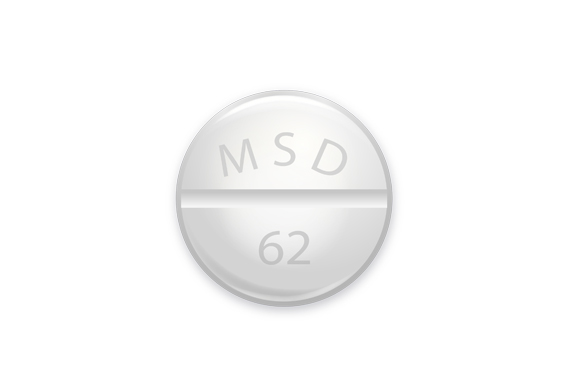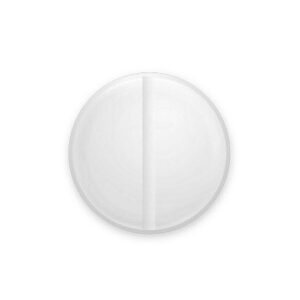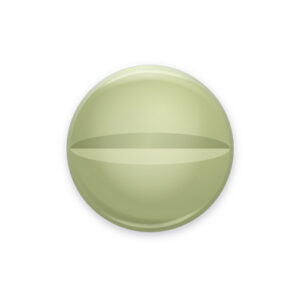Common use
Periactin is an antihistamine used to relieve or prevent the symptoms of hay fever and other types of allergy. This medication is preventing the effects of histamine, which is produced by the body. Also, Periactin is used to prevent such symptoms as motion sickness, vomiting, nausea, and dizziness. Sometimes Periactin is prescribed to treat cluster headaches and to stimulate appetite in underweight people.
Dosage and direction
Consult with your doctor before using. Use no more than was prescribed. Take each dose of Periactin with a full glass of water, with or without food. Do not take more than 32 mg of Periactin in 1 day. The recommended dose for adults is 4 milligrams (1 tablet) 3 times daily. Dosage may vary from 4 mg to 20 mg a day, but the most commonly used is from 12 mg to 16 mg. In patients over 65, the doctor will probably keep the dosage relatively low.
The recommended dose for children 7 to 14 years old is 4 milligrams (1 tablet) 2 or 3 times a day. Do not take more than 16 milligrams a day.
The recommended dose for children 2 to 6 years old is 2 milligrams (one-half tablet) 2 or 3 times a day. Do not take more than 12 milligrams a day.
Note: this instruction presented here just for review. It’s very necessary to consult with your doctor before using. It helps you to get the best results.
Precautions
Be careful because Periactin can make you drowsy or impair your coordination. Pay more attention while you are driving, climbing, or operating machinery, or doing hazardous tasks until you know how you react to Periactin. Also, use this medication with caution if your medical history includes bronchial asthma, glaucoma, an overactive thyroid gland, high blood pressure, heart disease, or circulatory problems. Periactin should not be used during pregnancy, becoming pregnant or lactating. Do not use it before breastfeeding without a doctor’s advice.
Contraindications
Periactin is contraindicated in:
– patients undergoing therapy for an acute asthmatic attack;
– newborn or premature infants; use in infants has been associated with apnea, cyanosis, and respiratory difficulty;
– breastfeeding mothers;
– patients with known sensitivity to cyproheptadine hydrochloride or drugs with a similar chemical structure;
– concurrent use with monoamine oxidase inhibitors;
– glaucoma;
– patients with pyloroduodenal obstruction, stenosing peptic ulcer, symptomatic prostatic hypertrophy, predisposition to urinary retention or bladder neck obstruction;
– elderly, debilitated patients.
Possible side effect
They may include an allergic reaction: hives; difficulty breathing; swelling of your face, lips, tongue, or throat. Also, the most possible side effects include:
– confusion, hallucinations, unusual thoughts, or behavior;
– seizure (convulsions);
– ringing in your ears;
– feeling like you might pass out;
– fast or pounding heartbeats;
– easy bruising or bleeding;
– urinating less than usual or not at all; or
– pale or yellowed skin, dark-colored urine, fever, or unusual weakness.
Less serious side effects include:
– mild drowsiness, dizziness, or a spinning sensation;
– restlessness or excitability (especially in children);
– sleep problems (insomnia), tired feeling;
– numbness or tingling feeling;
– increased sweating or urination;
– blurred vision;
– appetite changes;
– dry mouth or nose, upset stomach; or
– nausea, diarrhea, constipation.
If you experience one of them, stop using Periactin and tell your doctor as soon as possible. Also, consult with your doctor about any side effect that seems unusual.
Drug interaction
Periactin interacts with such medication as: isocarboxazid (Marplan); phenelzine (Nardil); rasagiline (Azilect); selegiline (Eldepryl, Emsam); or tranylcypromine (Parnate). Also, note that interaction between two medications does not always mean that you must stop taking one of them. As usual, it affects the effect of drugs, so consult with your doctor about how interactions are being managed or should be managed.
Missed dose
If you forgot to take your dose in time, please do it as soon as you remember. But do not take it if it is too late or almost time for your next dose. Do not take double or extra doses. Take your usual dose the next day at the same regularly scheduled time.
Overdose
Symptoms of Periactin overdose may include: extreme drowsiness, confusion, hallucinations, very dry mouth, large pupils, pale skin, vomiting, or fainting. If you experience one of them, call your doctor immediately.
Storage
Store at room temperature between 59-77 degrees F (15-25 degrees C), away from light and moisture, kids, and pets.
Periactin
Active Ingredients:Cyproheptadine
$0.82per pill
$0.82per pill
Yderligere information
| Dosage | 120 pills – 4MG, 180 pills – 4MG, 30 pills – 4MG, 60 pills – 4MG, 90 pills – 4MG |
|---|---|
| Active Substance | Cyproheptadine |





wierzbra (verificeret ejer) –
It worked fabulously. My sex drive returned to its normal level.
krishnan (verificeret ejer) –
my appetite returned with a vengeance and everything I ate tasted so much better.
Sam (verificeret ejer) –
it helps me a lot coz now i can eat like a human being before takig this i used to look or only kiss my food.
Tamei (verificeret ejer) –
this medation has increased my appetite greaty thats why i take it
Nicole Warwick (verificeret ejer) –
I started taking this medicine because lost of appetite and i’ve always been very thin less than 100 pounds all my life. Started taking it at the age of 37 after about 2 weeks of taking it twice a day i now had a healthy eating habit and weighing in at 135 pounds.
Debbi Collins (verificeret ejer) –
I LOVE THIS MED BECAUSE IT HEALS THE ALLERGIES AND I GANED THE RIGHT LBS THAT I LOST DURING MY TIME BEING SICK.